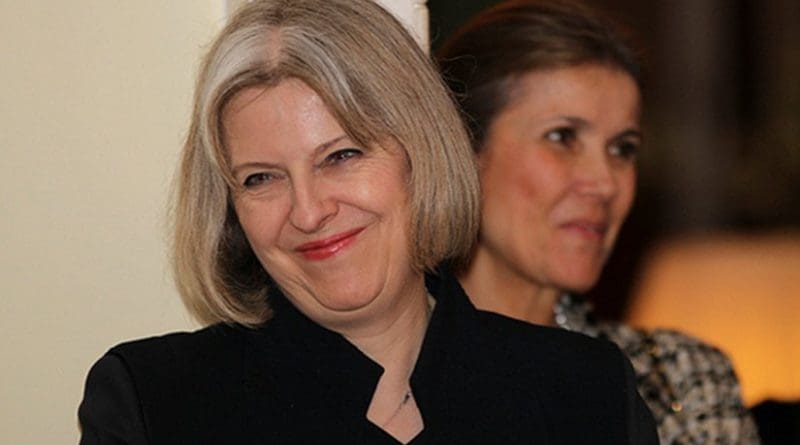May Rules Out Irish ‘Hard Border’; Scotland’s Sturgeon Mulls Second Independence Poll
By EurActiv
By Matthew Tempest
(EurActiv) — Theresa May has pledged there will be no return to a ‘hard border’ between a post-Brexit Northern Ireland and the Republic of Ireland, as Scotland’s First Minister Nicola Sturgeon said she was now taking “preparatory steps” towards a second independence referendum in the wake of the Brexit vote.
May spent Monday (25 July) in Northern Ireland – her first trip there since becoming prime minister earlier this month.
Northern Ireland voted by 56% to 44% to remain in the EU – as is its southern neighbour, the Republic – while the UK overall voted 52-48% to leave in the 23 June referendum.
That now leaves several dilemmas with the United Kingdom’s devolved regions, namely the peace process and border in Ireland, and Scotland’s prospects of leaving the UK in order to rejoin the EU, and even Gibraltar’s relations with Spain.
Speaking in Belfast on Monday, after meeting Northern Ireland’s First Minister Arlene Foster and Deputy First Minister Martin McGuinness, May said a “practical solution” would be found to the border question.
Northern Ireland suffered 30 years of terrorism and – at times – near civil war, over the Protestant north’s desire to remain part of the UK, and the republican, Catholic, south’s desire for unification with Dublin.
More than 3,600 people died in the conflict before the Good Friday Agreement of 1998, under Tony Blair, brokered a peace deal.
“Nobody wants a return to the borders of the past,” May said. “What we do want is to find a way through this that is going to work and deliver a practical solution for everybody.”
McGuinness, a former commander with the Irish Republican Army (IRA), but now deputy first minister with Sinn Fein, has called for a referendum on Northern Ireland rejoining the south, rather than leaving the EU.
McGuinness aslo raised concerns about whether the British government would replace billions of euros of agricultural subsidies and hundreds of millions of euros of peace funding provided by the European Union.
Britain and Ireland share an open-border Common Travel Area (CTA) that dates back to the 1920s, continuing arrangements from before Irish independence.
Irish Prime Minister Enda Kenny said last week that Brexit must not mean the establishment of a “hard border” between Northern Ireland and the Republic of Ireland.
“Hard borders would not be accepted in the south or the north,” said Kenny.
Meanwhile, in Scotland on Monday, First Minister Nicola Sturgeon said another independence referendum was “one of those options Scotland must have the right to consider”, just two years after the country voted 55% to 45% to stay in the UK.
“If we find that our interests can’t be protected in a UK context, independence must be one of those options that Scotland must have the right to consider,” Sturgeon said in a speech.
“That’s why we’ll take the preparatory steps to ensure that it’s an option open to the Scottish parliament if the Scottish parliament considers it necessary.”
Sturgeon did not say what form the preparatory work would take, but stressed that the unprecedented nature of Britain’s exit meant all options for future ties with the EU and the rest of the United Kingdom should be considered.
“The UK that we voted to stay part of in 2014, a UK within the EU, is fundamentally changing. The outlook for the UK is uncertainty, upheaval and unpredictability,” she said.
“In these circumstances it may well be that the option that offers us the greatest certainty, stability, and maximum control over our own destiny is that of independence.”
Sturgeon also said she did not think a prolonged period of negotiations with the EU over how to leave the bloc would be in anyone’s interests, and she feared the terms of Britain’s exit could be unfavourable for Scotland.
“If we can read anything from the early signs, whether from government appointments, or from initial pronouncements – I hope I’m wrong about this – (it’s) that the UK is heading towards a hard rather than a soft Brexit,” she said.

